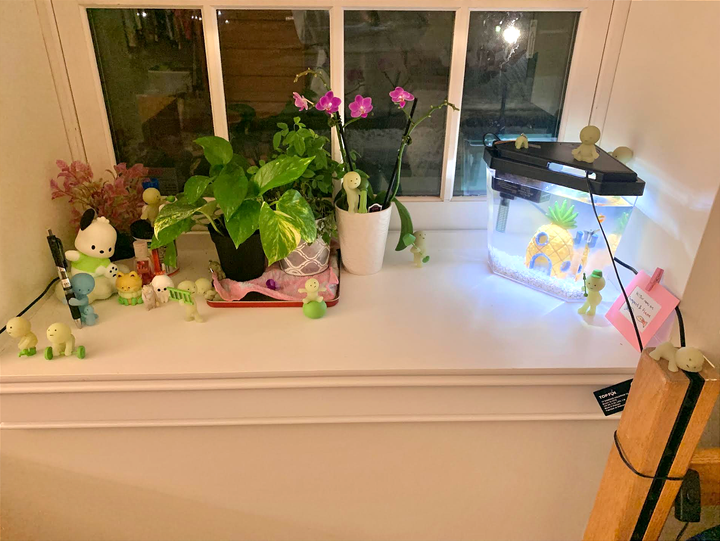Interior Design Sweeps the Campus

An especially creative portion of the first-year class has been recently consumed by a passionate interest in interior design. An unprecedented artistic development on the first-year quad, the foray into new and experimental methods of the art of turning spaces into practical, aesthetically-pleasing quarters is just now being recognized as a tangible venture. David Lander ’17 is largely credited within those circles most obsessed with the craft as spearheading the projects, most of which have been executed in North Dormitory. Jackson Lehnhart ’17 is credited as Lander’s primary design consultant.
I was lucky enough to get an opportunity to interview Lander about his art. When asked about his new interest, Lander had quite a bit to say. His passion for interior design was apparent in every answer.
Q: So, why interior design?
L: “There is something so innately boring and canonical about college dorms. [Lenhart and I] were tired of talking into friends’ rooms and seeing the same thing day after day. So we decided to start experimenting on how we could help. We started with the flooring, where we tried Dixie cups filled with water, but weren’t quite satisfied with aesthetic. And that’s when we realized we had to think outside the box. Why should students be confined to sleeping only in their rooms?”
Q: What do you want observers to take away from your unique room designs?
L: “ … We are most concerned about students feeling trapped in their small dorm rooms. We think students should … [feel] free to enjoy their bed in the common room, the study nooks, a friend’s room or even the bathroom.”
Q: Which components of your brand of interior design make it uniquely yours?
L: “We market our dorm room makeovers by our commitment to maintaining comfort and a commitment to the original design of our clients’ beds. In recent days, we have had some competitors try to enter the market who have deviated from such commitments. Such competition leaves behind the comfort of rooms altogether, like in moving all interior furniture to the cold outdoors without even considering of proper set-up of the original room. This is a perversion of a crafted art.”
Sarah Frohman ’17 and Ashlyn Heller ’17 consider themselves burgeoning students of interior design, motivated entirely by competition with Lander and a desire to take their design a step further than his at every chance they see. Luckily, they were both available for an interview about the most intimate aspects of their brand. They were initially hesitant to reveal their prized design secrets, but eventually shared with me what makes their approach to interior design truly theirs.
Q: What originally inspired you?
F: “Well [Lander] initially redesigned our rooms, by putting [Heller’s] whole bed in the fourth-floor common room and my mattress in our common room, so we wanted to redesign his room in return.”
A: “But one-up him in the process, of course.”
Q: You have such a unique taste in interior design; what motivates your art?
F: “We like nature.”
H: “It was important to replicate the organization of his room in a natural setting. And we know that he loves to ski, so we figured that with the snow he’d be right at home but still feel the protection of being at Amherst.”
S: “And we designed the space to be in-between snow banks, so it was natural and homey.”
Q: What message are you trying to send your audience?
F: “Anything can be art.”
H: “Even revenge.”
All of the designers seem to be taking a reductionist approach, rendering the actual space in which the furniture and other elements of the room are arranged essentially irrelevant. Bedrooms no longer serve the purpose of a home for a bed, desk and dresser. And why should they, when the common room, or even the front lawn of North, can represent perfectly appropriate spaces in which to work interior design magic? With these interior designers, convention is thrown out the door and caution to the wind, as they strive to create exceptional trademarks.
As an active observer, it is truly refreshing to see the first-year community engaged cooperatively in pursuing artistic ventures that have not been given much attention on the Amherst campus in the past. Their fresh, inspired perspectives on interior design and their unique conceptualizations of the integrity of living spaces could be well-received and even respected beyond the scope of the College. The recent interest in interior design really speaks to the creative potential of Amherst students, especially when engaged in healthy competition with one another. I can’t wait to see what wonderful spaces these students design next.




Comments ()